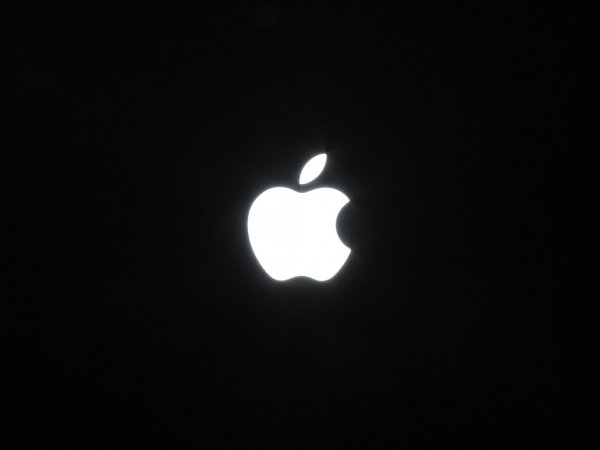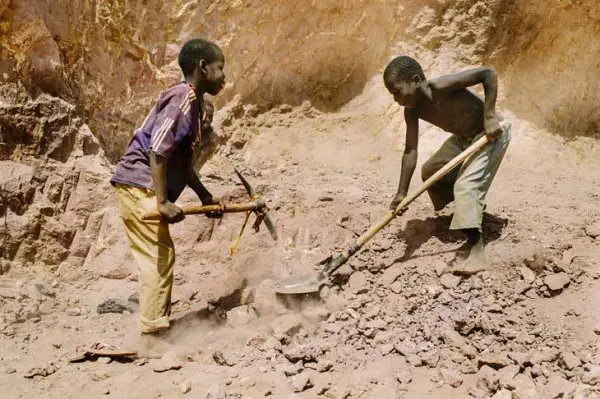Apple Announce Release Of New IPhone 7: But At What Cost?
Tags: opinion

By Anna Scanlon Truth Theory
The Internet may be abuzz about the iPhone 7 and those teeny tiny headphones that everyone’s going to lose in about 30 minutes—but do you really know what others go through in order to afford you the luxury of keeping up with your friends on Facebook on the go?
Although Apple’s website presents a squeaky clean image, and one that respects the rights of workers all around the world, this paltry statement isn’t presenting even close to the full picture. In fact, despite its claims that they treat all workers fairly and pay a living salary, Apple has come under scrutiny several times for some questionable business practices.
In 2015, Apple came under fire for the myriad of human rights violations involved in the creation of the iPhone 6S after an undercover investigation in China. The conditions at the supplier, known as Pegatron, remained unchanged since it was investigated in 2013, two years prior, and the conditions the workers were in were found to be deplorable.
Workers at the Shanghai based Pegatron were found to live onsite in crowded and unhygienic conditions. The workers slept on bunk beds, with a dozen or more people squeezing into the same room.
Many were working 12-hour days, six days a week in order to make ends meet and faced large fines that would be impossible to pay with their wages for minor infractions. In order to cover this up, Pegatron often sent false or misleading documents back to Apple, making the company think that they were treating the workers fairly.
Not only did workers at Pegatron face unsanitary and crowded conditions, but they were working daily with hazardous chemicals without any proper instruction on how to handle them. Workers at the plant handled arsenic and mercury routinely as part of the iPhone assembly, yet the undercover investigator reported to International Business Times UK that he was never given any instruction on a safe way to handle these potentially dangerous products.

There is no word on whether or not Apple has since investigated the conditions at Pegatron.
In 2014, a factory in Shenzhen, China that made Apple products reported that 13 workers, aged 19 to 24, were diagnosed with leukemia. Five of them perished. An investigation revealed that this could have been partly due to the dangerous chemicals used to clean the factory floor. However, as of 2013, Apple has stated that they no longer use these chemicals in any of their plants.
And although Apple says they have a zero tolerance policy on child labor, they were accused in January of this year by Amnesty International contracting mines that put children as young as seven to work in Democratic Republic of Congo. These children work on cobalt mines, one of the country’s biggest exports. The element is a key part in lithium batteries.
An investigation into the conditions of these mines proved to be shocking, especially for a company that is so vocal about protecting human rights.
The investigators collected quotes from children who worked in the mines, capturing a telling quote from an orphan named Paul, age 14, who had been mining since the age of 12:
“I would spend 24 hours down in the tunnels. I arrived in the morning and would leave the following morning … I had to relieve myself down in the tunnels … My foster mother planned to send me to school, but my foster father was against it, he exploited me by making me work in the mine.”
Apple shot back at the accusations stating that they don’t tolerate child labor and conduct regular audits of their supply chains, but it seems they are not regular enough. There has been no word on whether Apple has ceased operations with cobalt mines that employ children.
Mark Dummett of Amnesty International said the following about the gross human rights violations committed by Apple and other leading electronics companies:
“The glamorous shop displays and marketing of state of the art technologies are a stark contrast to the children carrying bags of rocks and miners in narrow man-made tunnels risking permanent lung damage.
“Millions of people enjoy the benefits of new technologies but rarely ask how they are made. It is high time the big brands took some responsibility for the mining of the raw materials that make their lucrative products.
“Companies whose global profits total $125bn (£86.7bn) cannot credibly claim that they are unable to check where key minerals in their productions come from.”
Two years ago, Apple was also accused of using high levels of benzene and n-hexane, two products that are thought to cause cancer and nerve damage. After an extensive four-month investigation, Apple stated that the toxins were not harming the workers on their factory floors, though the rates of leukemia in China seem to say otherwise.
Although Apple has since reduced these items in the final products after public outcry, they are still allowed in the initial production phase.
Despite Apple’s zero tolerance stance on human rights violations, it seems that this isn’t something they stand by strongly. These dangerous practices will, no doubt, continue until they are publically pressured into changing their production.
Anna Scanlon is finishing up her PhD in History at the University of Leicester. She makes a living as a freelance writer for several websites, including New Life Outlook where she discusses her struggle with lupus SLE. She is the author of three YA books: Unravelled, The Remnants and Children of the Most High. Anna also runs the lifestyle and veganism blog and accompanying YouTube channel Anna in Wonderland: https://www.annainwonderland.co.uk // https://youtube.com/TheAnnainWonderland
“Quantum Mechanics States Everything Is Vibration” Now did you know that there is a specific sound vibration that you can tune into that will make you vibrate in a higher and more productive state? You can learn more about this frequency and how you can get involved by joining this free training here!
Leave Comment: